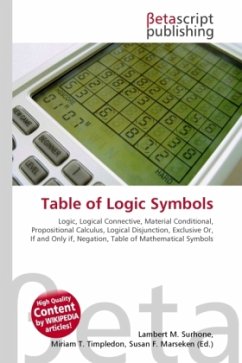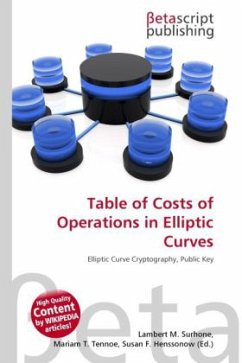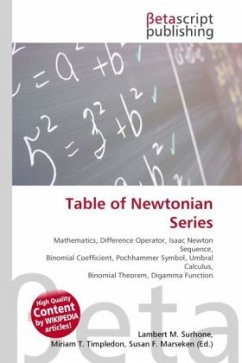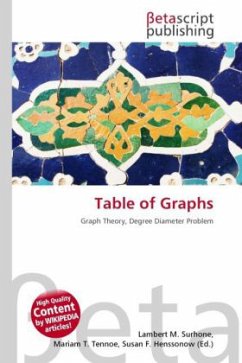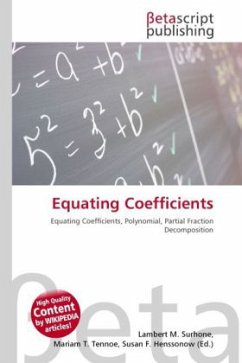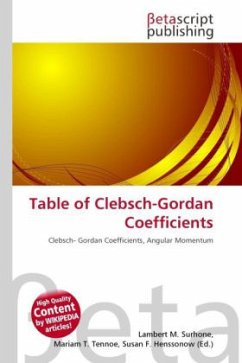
Table of Clebsch-Gordan Coefficients
Versandkostenfrei!
Versandfertig in 6-10 Tagen
26,99 €
inkl. MwSt.

PAYBACK Punkte
13 °P sammeln!
High Quality Content by WIKIPEDIA articles! This is a table of Clebsch-Gordan coefficients used for adding angular momentum values in quantum mechanics. The overall sign of the coefficients for each set of constant j1, j2, j is arbitrary to some degree and has been fixed according to the Condon-Shortley and Wigner sign convention as discussed by Baird and Biedenharn. Tables with the same sign convention may be found in the Particle Data Group's Review of Particle Properties and in online tables. In physics, the Clebsch Gordan coefficients are sets of numbers that arise in angular momentum coup...
High Quality Content by WIKIPEDIA articles! This is a table of Clebsch-Gordan coefficients used for adding angular momentum values in quantum mechanics. The overall sign of the coefficients for each set of constant j1, j2, j is arbitrary to some degree and has been fixed according to the Condon-Shortley and Wigner sign convention as discussed by Baird and Biedenharn. Tables with the same sign convention may be found in the Particle Data Group's Review of Particle Properties and in online tables. In physics, the Clebsch Gordan coefficients are sets of numbers that arise in angular momentum coupling under the laws of quantum mechanics. In more mathematical terms, the CG coefficients are used in representation theory, particularly of compact Lie groups, to perform the explicit direct sum decomposition of the tensor product of two irreducible representations into irreducible representations, in cases where the numbers and types of irreducible components are already known abstractly. The name derives from the German mathematicians Alfred Clebsch (1833 1872) and Paul Gordan (1837 1912), who encountered an equivalent problem in invariant theory.



